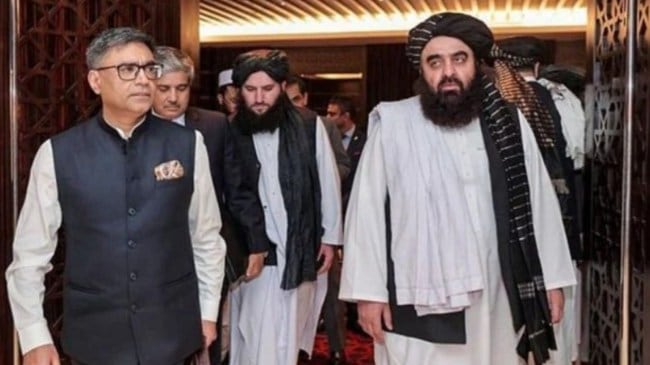Opinion New Delhi’s Taliban reset
India would not want to be perceived as a profit-seeking power whose rhetoric around the well-being of the Afghan people is at odds with their peripheral position in its larger geopolitical calculus
 India’s Pashtun policy should respect historical contexts to promote Pashtunwali and the traditions of the Pathan people.
India’s Pashtun policy should respect historical contexts to promote Pashtunwali and the traditions of the Pathan people. Written by Raghav Sharma
Barely a week into an uneasy truce with Rawalpindi, New Delhi dialled Kabul, marking the first ministerial-level contact with the Afghan Taliban since 1999. What stood out was the timing of the telephonic conversation between Minister of External Affairs S Jaishankar and his Afghan counterpart, Amir Khan Muttaqi. After all, the Taliban have long been regarded as a proxy of Rawalpindi.
The outreach signals New Delhi’s desire — albeit a belated one — to accelerate its engagement in the Afghan theatre: A tall order, given China’s deep history of involvement with the Taliban since the 1990s, alongside its cultivation of an array of non-state actors in the Af-Pak region. Beijing’s moves have been carefully aligned with Moscow, Tehran and Rawalpindi, further buttressed by its robust diplomatic presence, economic leverage, and its position as a veto-holding member of the UN Security Council.
Developments since the Afghan Taliban’s return to power have underscored the pyrrhic nature of the “victory” for the generals in Rawalpindi — particularly in light of the Tehrik-i-Taliban Pakistan (TTP) acquiring reverse strategic depth in Pakistan. Moreover, Rawalpindi’s failed attempts to goad an antipathetic Kabul into acting against TTP safe havens on its side of the Durand Line have led it to resort to forced repatriation of Afghan refugees and the use of air power to bomb alleged TTP camps. This has only served to further embitter the relationship and reinforce pervasive anti-Pakistan sentiment at a popular level in Afghanistan.
This has created a unique situation for both Kabul and New Delhi. For the Afghan Taliban, engagement with India offers not only an opportunity to shore up its quest for elusive legitimacy but also an antidote to pressure from Pakistan. It further enables the Taliban to counter doubts cast on its credentials as an independent, nationalist actor in its own right.
During the 20 years of the Afghan republic’s existence, New Delhi’s development initiatives were widely acclaimed. Now, however, the timing of this renewed outreach runs the risk of India being seen as a power seeking to use Afghanistan as a proxy battleground to settle scores with Pakistan. Moreover, given Trump’s recently acquired penchant for brokering “peace” in Kashmir, India must be cautious not to provide Washington with an opportunity to re-hyphenate New Delhi and Rawalpindi.
India might also find it difficult to reconcile its image as the “world’s largest democracy” and its commitment to a rights- and rules-based order due to engagement with a regime that has a deplorable human rights record. While India may be compelled to sup with the devil, it should not only do so with a long spoon but also pay close attention to how public narratives are shaped, given their increasing significance in international affairs.
most read
India would not want to be perceived as a profit-seeking power whose rhetoric around the well-being of the Afghan people is at odds with its peripheral position in its larger geopolitical calculus. For instance, while Jaishankar issued a statement appreciating Muttaqi for his “condemnation of the Pahalgam terrorist attack… his rejection of recent attempts to create distrust between India and Afghanistan,” the Afghan Ministry of Foreign Affairs stated that discussions “…focused on enhancing bilateral relations, promoting trade and upgrading diplomatic engagement… streamlining the issuance of visas.” This underscored the lack of adequate syncing of diplomatic priorities and also risks re-hyphenating Af–Pak with Kashmir.
Therefore, for a meaningful and effective reset in its ties with Afghanistan, India will have to bridge the gap between rhetoric and reality. Resuscitating a sizable development footprint, re-centring the Afghan people, creating economic leverage through trade, drawing on Ankara and Tehran’s playbook of retaining ties with a cross-section of the Afghan elite, and engaging lateral experts in the field could be some starting points.
The writer is Professor and Director, Centre for Afghanistan Studies at the School of International Affairs, OP Jindal Global University, India




